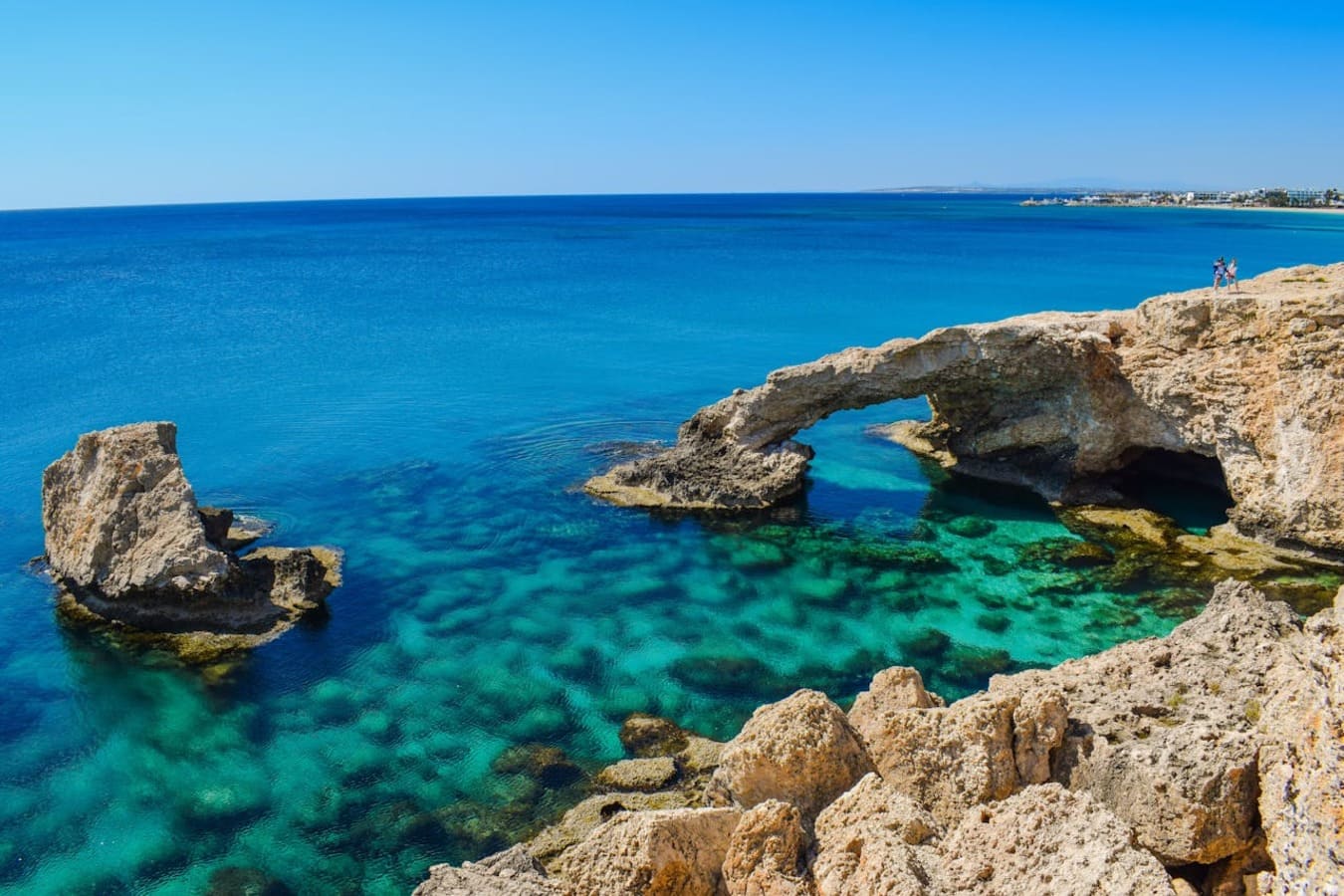Market Research in Cyprus

How well do you really know the Cypriot market? With its unique blend of culture, economy, and consumer behavior, delving into market research in Cyprus could be the key to unlocking untapped potential and seizing lucrative opportunities.
What Is Market Research in Cyprus?
Market research in Cyprus aims to understand consumer preferences, market trends, competitive landscape, regulatory environment, and economic indicators. By conducting market research, businesses gain valuable insights into the needs and behaviors of Cypriot consumers, identify market opportunities and challenges, and make informed strategic decisions.
Why Do Businesses Need Market Research in Cyprus?
Market research in Cyprus helps businesses gain insights into Cypriot consumers’ preferences, needs, and buying behaviors. By understanding consumer preferences, businesses can tailor their products, services, and marketing strategies to meet customer demands better and enhance satisfaction.
Moreover, conducting market research in Cyprus enables businesses to identify untapped market segments, emerging trends, and growth opportunities.
Furthermore, market research provides valuable data and insights that enable businesses to make strategic decisions regarding product development, pricing strategies, market-entry, and expansion plans.
When to Conduct Market Research in Cyprus

Before entering the Cypriot market, businesses should conduct thorough market research to assess the feasibility of their entry strategy. This includes evaluating market demand, competition, regulatory requirements, and cultural factors to make informed decisions about market entry.
Conducting market research during the product development phase allows businesses to gather feedback from Cypriot consumers regarding product features, design, pricing, and packaging preferences. It ensures that products meet the needs and expectations of the target market.
For businesses already operating in Cyprus, market research can help identify opportunities for expansion into new market segments or geographic areas.
Our Current Market Review and Recommendations for Cyprus
We believe Cyprus presents promising business opportunities, particularly in tourism, real estate, renewable energy, and information technology sectors. As the economy recovers and diversifies, businesses should position themselves to capitalize on emerging opportunities and navigate potential risks.
Businesses should conduct thorough competitor analysis to identify key competitors, assess their strengths and weaknesses, and develop strategies to differentiate themselves in the market.
Recommendations:
Based on our market review, we recommend that businesses operating in Cyprus take the following actions:
- Prioritize sustainability: Embrace sustainable practices and initiatives to align with evolving consumer preferences and market trends.
- Embrace digital transformation: Invest in digital technologies and online platforms to enhance customer engagement, streamline operations, and drive business growth.
- Focus on innovation: Innovate products, services, and business models to meet the changing needs of Cypriot consumers and differentiate them from competitors.
- Expand market presence: Explore opportunities for expansion and diversification into new product categories or geographic regions to drive revenue growth.
- Foster strategic partnerships: Collaborate with local partners, industry associations, and government agencies to navigate regulatory complexities, access new markets, and foster innovation.
Expected Results from SIS’s Market Research in Cyprus

At SIS International, we are committed to delivering impactful results through our market research services in Cyprus. Here’s what businesses can expect when partnering with us:
Actionable Insights:
SIS International provides businesses with actionable insights from robust data analysis and strategic interpretation. Businesses can make informed decisions that drive growth and profitability by understanding market dynamics, consumer behaviors, and competitive landscapes.
Enhanced Strategic Planning:
We empower businesses to enhance their strategic planning processes by providing comprehensive market intelligence and trend analysis. Our research findings enable businesses to identify opportunities, mitigate risks, and develop strategies that align with their long-term objectives in the Cypriot market.
Improved Decision-Making:
With SIS market research in Cyprus, businesses gain the confidence to make data-driven decisions grounded in evidence and analysis.
Competitive Advantage:
By leveraging SIS market research services, businesses can gain a competitive advantage in the Cypriot market. Our deep understanding of market trends, consumer preferences, and competitor strategies equips businesses with the knowledge and insights to differentiate themselves and stay ahead of the curve.
Long-Term Success:
Our goal is to support businesses in achieving long-term success and sustainability in the Cypriot market. By building strategic partnerships, fostering innovation, and driving continuous improvement, we help businesses adapt to evolving market dynamics and thrive in an ever-changing business landscape.
Key Industries in Cyprus

Cyprus has a diverse economy with several key industries driving growth and development. Here are some of the prominent sectors in Cyprus and their growth potential:
• Tourism: Tourism is a vital sector of the Cypriot economy, contributing significantly to GDP and employment. With its picturesque beaches, rich cultural heritage, and favorable climate, Cyprus attracts millions of visitors annually.
• Shipping: Cyprus has a long-standing maritime tradition and is home to one of the largest ship registries in the world. The shipping industry plays a crucial role in Cyprus’s economy, offering maritime services, including ship management, marine insurance, and maritime education.
• Finance: Cyprus has emerged as a leading financial services center in the Eastern Mediterranean region, attracting investment from international banks, financial institutions, and investment firms. The country offers a favorable tax regime, a robust legal framework, and a skilled workforce, making it an attractive destination for financial services companies.
• Real Estate: The real estate sector plays a significant role in Cyprus’s economy, driven by demand for residential, commercial, and tourism-related properties. The country’s property market offers opportunities for investment in residential developments, commercial projects, and hospitality infrastructure.
• Information Technology: Cyprus has a burgeoning information technology sector fueled by a skilled workforce, a supportive business environment, and government incentives for innovation and entrepreneurship. The country has a thriving ecosystem of technology startups, software developers, and IT service providers. Key focus areas include software development, cybersecurity, digital marketing, and e-commerce.
Leading Players in Key Industries in Cyprus
In Cyprus, several leading players drive innovation, growth, and competitiveness across key industries. Here are some of the prominent companies and organizations making significant contributions to the Cypriot market:
- Louis Group: As one of the largest tourism and hospitality groups in Cyprus, Louis Group operates a diverse portfolio of hotels, resorts, and travel services.
- Bernhard Schulte Shipmanagement (BSM): BSM is a leading ship management company with a significant presence in Cyprus. Specializing in technical management, crewing, and maritime consultancy services,
- Bank of Cyprus: As the largest bank in Cyprus, Bank of Cyprus provides a wide range of banking and financial services to individuals, businesses, and institutions.
- Hellenic Bank: Hellenic Bank is a leading financial institution in Cyprus, offering banking, wealth management, and investment services to a diverse customer base.
- Leptos Group: Leptos Group is a prominent real estate developer with diverse residential, commercial, and hospitality projects across Cyprus.
- Wargaming Cyprus: Wargaming Cyprus is a leading game development studio known for creating popular online multiplayer games such as World of Tanks.
Neighborhoods

The city of Nicosia is the largest and also the capital of Cyprus. Fun fact: Nicosia is the only city in Cyprus that was not built near the sea but in the country’s middle instead. You can visit Venetian walls, museums, and ancient monuments in Nicosia.
Limassol is the worldly city of Cyprus. Known best for its nature, this city has many restaurants, bars, and beaches. The Limassol marina is also a hot visitor site. Limassol also holds a wine festival each year, which is a trademark of the city.
Larnaca is the third-largest city and the entry point to Cyprus. It has an international airport, which boosts trade and makes commutes easy. This city is famous for its salt lake and its stunning flamingos. Restaurants, bars, and clubs all offer the best time for visitors. This city also has the Umm Haram mosque, which is one of the holiest Islamic sites in the world.
Main Tourist Attractions in Cyprus
Cyprus is famous for its rich history, stunning natural landscapes, and vibrant cultural heritage, attracting visitors from around the world – and here are some of the main tourist attractions in Cyprus that contribute to the island’s appeal as a premier tourism destination:
Kourion: Located near Limassol, Kourion is an ancient city-state with well-preserved ruins, including a Greco-Roman theater, Byzantine basilica, and public baths.
Tombs of the Kings: Situated in Paphos, the Tombs of the Kings is a UNESCO World Heritage Site featuring a necropolis dating back to the Hellenistic and Roman periods.
Ayia Napa: Known for its vibrant nightlife and beautiful beaches, Ayia Napa is a popular resort town on Cyprus’s southeastern coast.
Protaras: Situated adjacent to Ayia Napa, Protaras boasts pristine beaches with crystal-clear waters and golden sands.
Kyrenia Castle: Located in the northern part of Cyprus, Kyrenia Castle is a medieval fortress overlooking the harbor of Kyrenia.
Market Drivers in Cyprus Tourism
Cyprus’s tourism industry is driven by several key factors contributing to its growth and sustainability. Here are the main market drivers shaping the tourism sector in Cyprus:
- Natural Beauty and Climate: Cyprus’s Mediterranean climate, with long, sunny summers and mild winters, makes it an attractive destination for tourists seeking sun, sea, and relaxation. The island’s pristine beaches, crystal-clear waters, and picturesque landscapes appeal to visitors looking for outdoor activities and natural beauty.
- Cultural Heritage and Historical Attractions: Cyprus boasts a rich cultural heritage spanning thousands of years, with a diverse array of historical sites, monuments, and archaeological treasures. Visitors have a unique opportunity to explore its fascinating history and cultural heritage, from ancient ruins and medieval castles to Byzantine churches and Ottoman mosques.
- Hospitality and Service Quality: Cyprus’s hospitality industry is known for its warm hospitality, friendly service, and high standards of accommodation and dining. From luxury resorts and boutique hotels to family-run guesthouses and traditional tavernas, Cyprus offers a range of options to suit every traveler’s preferences and budget.
- Government Support and Promotion: The Cypriot government actively promotes tourism and industry development through marketing campaigns, infrastructure investment, and policy initiatives.
- Events and Festivals: Cyprus hosts various cultural events, festivals, and celebrations throughout the year, attracting visitors interested in experiencing the island’s vibrant culture and traditions.
Market Restraints in Cyprus Tourism
While Cyprus’s tourism industry has experienced significant growth and success, it also faces several challenges and market restraints that impact its sustainability and competitiveness – and here are the main factors restraining the growth of the tourism sector in Cyprus:
- Seasonal Dependency: Cyprus’s tourism industry is highly seasonal, with most visitors arriving during the peak summer months. This seasonality creates challenges for businesses and communities reliant on tourism, leading to fluctuations in revenue, employment, and infrastructure usage throughout the year.
- Competition from Other Destinations: Cyprus faces competition from other Mediterranean destinations and global tourist hotspots offering similar attractions and amenities. Destinations in nearby countries may offer lower prices, better infrastructure, or more diverse tourism products, posing a challenge to Cyprus’s market share and competitiveness.
- Infrastructure Limitations: Despite investments in tourism infrastructure, Cyprus faces challenges related to transportation, accommodation, and public services, particularly in high-demand areas.
- Skills Shortages and Labor Issues: The tourism industry in Cyprus relies heavily on seasonal and migrant workers to meet staffing needs during peak periods. However, challenges are associated with recruiting and retaining skilled workers and issues related to wages, working conditions, and labor regulations.
- Dependency on Specific Source Markets: Cyprus’s tourism industry heavily depends on specific source markets, such as the United Kingdom, Russia, and Germany. These markets ‘ economic downturns, currency fluctuations, or geopolitical factors can significantly impact tourism demand and visitor arrivals to Cyprus.
Future Outlook of Cyprus Tourism
Despite facing challenges and market restraints, Cyprus’s tourism industry remains resilient and holds significant potential for growth and development in the future. Here are some key factors shaping the future outlook of the tourism sector in Cyprus and the potential growth opportunities it presents:
- Diversification of Tourism Products: Cyprus has the opportunity to diversify its tourism offerings beyond sun and sea tourism by promoting niche segments such as cultural tourism, ecotourism, adventure tourism, and wellness tourism.
- Digital Transformation and Innovation: Embracing digital technologies and innovation can enhance the competitiveness and efficiency of Cyprus’s tourism industry.
- Sustainable Tourism Development: Consumers and industry stakeholders are increasingly aware of the importance of sustainable tourism practices and responsible travel. Cyprus can be a sustainable tourism destination by promoting environmental conservation, cultural preservation, and community engagement.
- Cultural and Events Tourism: Cyprus’s rich cultural heritage and vibrant calendar of events offer opportunities to attract cultural tourists and event enthusiasts worldwide. By hosting cultural festivals, music concerts, food fairs, and sporting events, Cyprus can create unique tourism experiences and increase visitor numbers throughout the year.
- Promotion of Health and Wellness Tourism: With the growing demand for health and wellness experiences, Cyprus can capitalize on its natural assets, such as mineral springs, spas, and wellness retreats, to attract health-conscious travelers seeking relaxation, rejuvenation, and holistic wellness experiences.
Benefits and Strengths of the Market
Cyprus is a business hub. Its strategic location for trade at the crossroads of three major continents—Europe, Africa, and Asia—allows Cyprus to reach major markets in nearby regions.
Cyprus became a member of the Eurozone in 2008. Since then, it has formed more than 40 EU trade agreements. This benefit gives it full access to all markets in Europe.
Cyprus has one of the most talented workforces in the region. More than half the workforce has a tertiary education, the highest level in Europe. Thus, businesses do not have to import talent, as Cyprus already has many professionals.
Market Research in Cyprus: SWOT Analysis
Analyzing the strengths, weaknesses, opportunities, and threats of Cyprus’s tourism industry provides valuable insights into its competitive position and prospects:
Strengths:
-
- Rich Cultural Heritage: Cyprus boasts a diverse cultural heritage spanning thousands of years, including ancient ruins, medieval castles, and Byzantine churches, which attract history enthusiasts and cultural tourists.
- Natural Beauty: The island’s stunning landscapes, pristine beaches, and favorable climate make it an attractive destination for sun-seekers, outdoor enthusiasts, and nature lovers.
- Hospitality and Service Quality: Cyprus is renowned for its warm hospitality, friendly locals, and high standards of accommodation, dining, and service, enhancing the overall visitor experience.
Weaknesses:
-
- Seasonal Dependency: Cyprus’s tourism industry is heavily reliant on the summer season, leading to fluctuations in visitor numbers, revenue, and employment throughout the year.
- Infrastructure Limitations: Challenges related to transportation, accommodation, and public services, particularly in high-demand areas, may hinder the quality of the visitor experience and limit tourism growth.
- Dependency on Specific Source Markets: Cyprus’s tourism sector is highly dependent on key source markets, such as the UK, Russia, and Germany, leaving it vulnerable to economic downturns or geopolitical instability in these countries.
Opportunities:
-
- Diversification of Tourism Products: Cyprus has the opportunity to diversify its tourism offerings by promoting niche segments such as cultural tourism, ecotourism, adventure tourism, and wellness tourism, catering to evolving traveler preferences.
- Digital Transformation: Embracing digital technologies and innovation can enhance the competitiveness and efficiency of Cyprus’s tourism industry, improving marketing strategies, visitor experiences, and operational processes.
- Sustainable Tourism Development: Investing in sustainable tourism practices, environmental conservation, and community engagement can enhance Cyprus’s reputation as a responsible tourism destination and attract environmentally conscious travelers.
Threats:
-
- Competition from Other Destinations: Cyprus faces competition from other Mediterranean destinations and global tourist hotspots, which offer similar attractions and amenities, threatening its market share and competitiveness.
- Environmental Degradation: Unsustainable tourism practices, such as overdevelopment, pollution, and habitat destruction, pose threats to Cyprus’s natural environment, biodiversity, and long-term sustainability as a tourism destination.
Consumer Base
The people of Cyprus have an average purchasing power. They are also friendly and open to new products. Cypriots, like anyone, value a company that provides good service. They show favor to brands they know and with which they have a good past. Product quality, price, and value all determine whether the consumer would buy the product.
Reasons to Grow Your Business in the Market
Cyprus is a country that supports growth. It offers excellent incentives for foreign and local investors, such as low tax rates and FDI.
Cyprus has a solid infrastructure, making establishing new businesses easy. English is also a common language. The country also offers many office spaces in the cities for startup investors.
Our Facility Location in New York
11 E 22nd Street, Floor 2, New York, NY 10010 T: +1(212) 505-6805
About SIS International
SIS International offers Quantitative, Qualitative, and Strategy Research. We provide data, tools, strategies, reports, and insights for decision-making. We also conduct interviews, surveys, focus groups, and other Market Research methods and approaches. Contact us for your next Market Research project.

